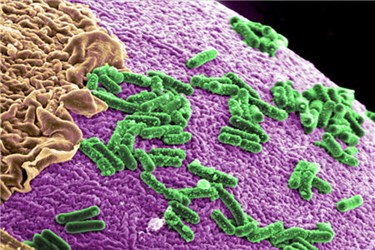DARPA's New Synthetic Biology Program To Yield Novel MedTech
By Joel Lindsey

A new program initiated by the Defense Advanced Research Projects Agency (DARPA) will focus on making significant advancements in the growing field of synthetic biology. The program could pave the way for the future development of increasingly complex and effective biomedical devices.
In particular, the program — dubbed the Biological Robustness in Complex Settings (BRICS) program — will focus on facilitating advancement in three primary technical areas, according to a press release published recently by the agency.
First, BRICS projects will work to optimize the robustness of engineered organisms designed to operate in a variety of different biological environments. Secondly, BRICS projects will focus on improving the genetic integrity and stability of synthetically engineered substances and organisms. Finally, BRICS will focus on finding ways to make synthetically produced biomaterials and organisms safer by developing more effective means of controlling their growth and proliferation.
“By making these systems more robust, stable, and safe, BRICS seeks to harness the full range of capabilities at the intersection of engineering and biology,” said DARPA program manager Justin Gallivan. “These capabilities could include efficient on-demand bio-production of novel drugs, fuels, sensors, and coatings; or engineered microbes able to optimize human health by treating or preventing disease.”
According to DARPA officials, the BRICS program was conceived as a response to some of the most persistent obstacles faced by scientists in the field of synthetic biology. Until now, attempts to sequence, synthesize, and manipulate genetic material in order to synthetically produce biomaterials and organisms have struggled, since there is a tendency for these types of products to be fairly fragile and unstable. The costs to overcome these challenges are often prohibitively expensive.
“To help address these challenges … BRICS seeks to develop the fundamental understanding and component technologies needed to increase the biological robustness and stability of engineered organisms while maintaining or enhancing the safe application of those organisms in complex biological environments,” the press release explained. “The goal is to create the technical foundation for future engineered biological systems to achieve greater biomedical, industrial, and strategic potential.”
The program is currently accepting project proposals, according to the press release.
The BRICS program is the latest effort by DARPA to fund innovative projects. Earlier this month, for example, Medical Device Online reported on a new DARPA-funded research and development project aimed at studying human memory in order to develop implantable “neuroprosthetics.”
Image Credit: DARPA
